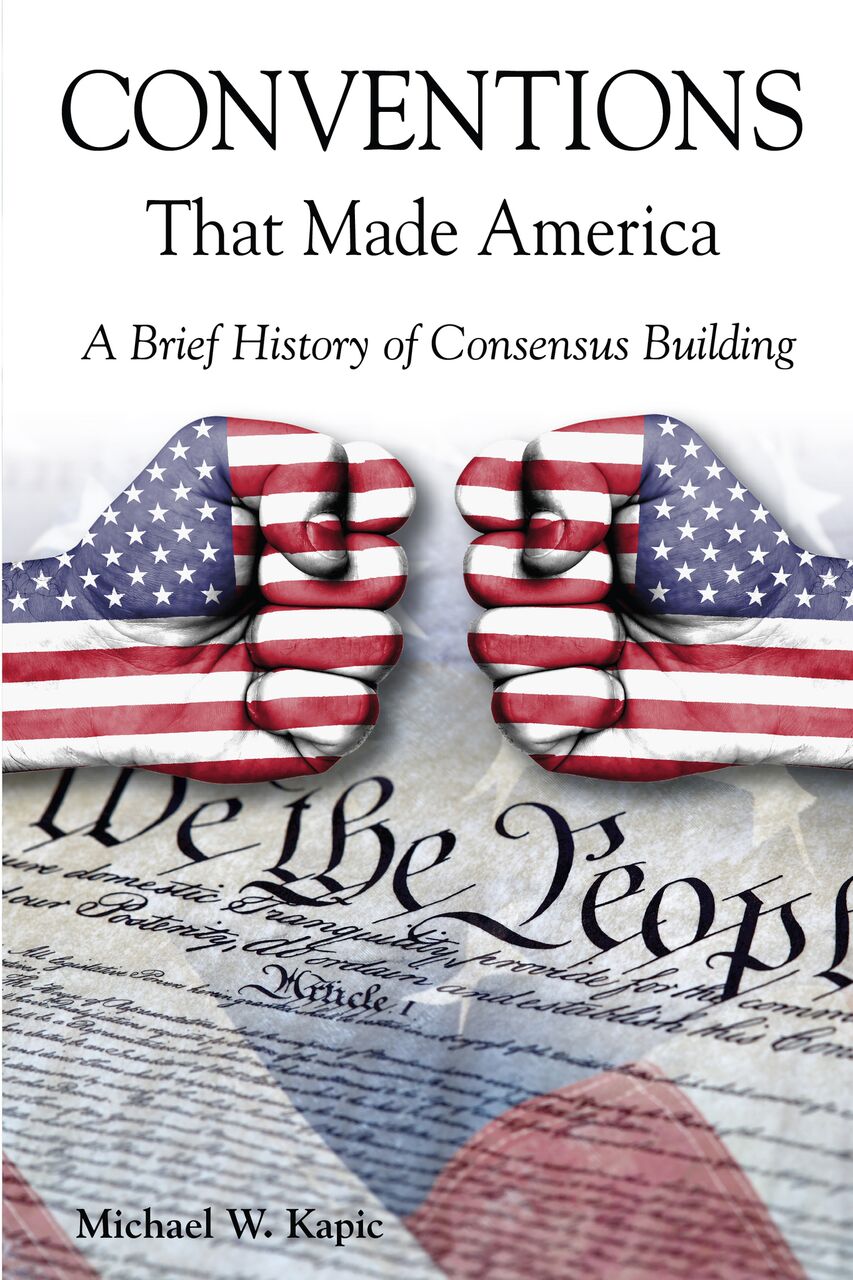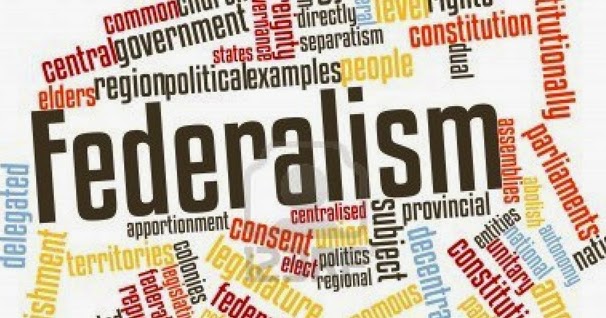
Can States Rein in Federal Spending?
The long, rocky path to a state convention and fiscal responsibility amendment
By Kevin Stocklin – 8/2/2023
As the administrative state in Washington grows and assumes ever-increasing powers, some are calling for U.S. states to step in to halt federal spending and spiraling federal debt.
Critics argue that the expansion of government, which the administration has called “Bidenomics,” has led to chronic inflation, shortages and record debt levels, making most Americans poorer.
This week, Fitch, a debt rating agency, concurred, downgrading America’s credit rating from the “risk-free” level of AAA to AA+. According to Fitch, “the rating downgrade of the United States reflects the expected fiscal deterioration over the next three years, a high and growing general government debt burden, and the erosion of governance relative to ‘AA’ and ‘AAA’ rated peers.”
Fiscal conservatives have been frustrated at a federal government that has been willing to spend without limits, and the failure of both Democrats and Republicans in Congress to rein it in, and some say the solution lies outside of Washington, with the states themselves.
Under Article V of the Constitution, states can convene to amend the Constitution if two-thirds of state legislatures call for a convention. And if three-quarters of the states approve a balanced budget amendment written by such a convention, it becomes law.
However, one group is arguing that not only should states call for a convention to get federal spending under control, but that the required number of states have already done so, repeatedly, and Congress has ignored them. They are working to bring a writ of mandamus, also called a “do-your-job” lawsuit, against Congress to force federal lawmakers to call a convention of states, with the goal of passing a Constitutional amendment to set limits on federal deficit spending.
According to David Walker, former U.S. Comptroller General, the requisite number of states petitioned Congress for a convention in 1979 and again in 1983, during prior periods of runaway government spending and inflation. Today, Mr. Walker is working through an organization called the Federal Fiscal Sustainability Foundation (FFSF) to try to bring government spending to heel.
“Congress should have called the convention in 1979,” Mr. Walker told The Epoch Times. “But they never assigned responsibility for anyone to collect the applications, store the applications, and count the applications.
“One could argue that they didn’t want to keep track because they have a fundamental conflict of interest that ultimately may have to be resolved by the Supreme Court,” he said. “That’s why myself and a few others have worked to do the research, and are taking steps both within the Congress as well as with the states to force them to right this wrong.”
No Precedent for Suing Congress
Currently, the strategy is to find several state attorneys general who would bring suit against Congress, but this legal path is likely to be long and difficult. There is little precedent for a case like this, nor is there a precedent for suing Congress, but advocates insist they have a strong case based on the intent of the framers of the Constitution.
“The debates in the Federalist Papers make it very clear that Congress was not supposed to have any discretion here,” Mr. Walker said. “They’re just supposed to say, once you hit [two-thirds of the states], that’s it; you set the date and place of the convention and then the states take over.”
In March, Rep. Jodey Arrington (R-Tex.) introduced House Bill HCR 24, which calls for “an Article V Convention for proposing a Fiscal Responsibility Amendment to the United States Constitution.”
According to Rep. Arrington’s bill, Nevada’s petition for a convention in February 1979 was the 34th such petition, “thus achieving the ‘two-thirds’ congressional mandate to call the Convention for proposing amendments; congressional records reported 39 applications by the end of 1979, 40 in 1983, and 42 total applications over time.”
“There are a number of groups in the private sector that are moving forward with efforts to hold an amendment convention,” Barry Poulson, emeritus professor of economics at the University of Colorado, told The Epoch Times. “We aren’t the only group that is doing this, so I think even if we lose that particular suit, this will not stop efforts to get a fiscal amendment into the Constitution, either through Congress or through an Article V amendment convention.”
And the cases of states coming together to address issues, ranging from fiscal responsibility to shared use of rivers to repealing prohibition, are more common than people might think. Michael Kapic, a retired corporate executive turned historian, has researched state conventions in his book, “Conventions that Made America.”

Hundreds of State Conventions Throughout US History
“The idea that we’ve never done this before is totally foreign,” Mr. Kapic told The Epoch Times. Going back even before the Constitutional Convention of 1787, which produced America’s Constitution, states regularly convened to sort out interstate or national issues.
“Many are unaware that we’ve done this hundreds of times over the last three centuries,” Mr. Kapic writes. While most of the conventions generated a constructive outcome, there is the highly regrettable case of the 1861 state convention in Montgomery, Alabama, better known as the Confederate Constitutional Convention, which supported slavery and sparked the U.S. Civil War.
Since the rise of the progressive movement at the beginning of the 20th century, “the DC government has evolved into a centralized conglomerate of deep state politicians, special interests, and bureaucrats, who have found ways to benefit themselves. By gaming the Constitution, they learned to blend money and power to continue their laboratory of unconstitutional experiments, aware that the taxpayer would be there to pick up the pieces and repair their damages.”
The year 1913 was a pivotal year for the progressive movement and consolidation of power in the federal government. That year, Congress passed the 16th amendment, which gave it the power to tax incomes, and established the Federal Reserve system, which centralized monetary authority.
Today, the most recent expansion of federal agencies under Bidenomics includes diktats from the Environmental Protection Agency (EPA) to force automakers to shift production to electric vehicles (EVs), the Securities and Exchange Commission (SEC) to force “green” accounting on companies, and new rules from the Department of Energy (DOE) and the Consumer Product Safety Commission (CPSC) to phase out gas stoves and force strict new standards on household appliances that will ban many products on the market today. Alongside this effort are the hundreds of billions of dollars included in federal laws like the Infrastructure Act and the Inflation Reduction Act to subsidize the transition away from fossil fuels toward wind, solar, and electricity-powered products.
Switzerland’s Debt Brake
But it is federal borrowing and spending that is the primary target of the Foundation’s efforts, and they point to Switzerland’s “debt brake,” which was passed by a wide margin in a 2003 nationwide referendum, as a possible model. With support from 85 percent of the population, “Switzerland’s debt brake limits spending growth to average revenue increases over a multiyear period,” according to a Cato report.
In addition, the report stated, “maximum rates for most national taxes in Switzerland are constitutionally set (such as by an 11.5% income tax, an 8% value‐added tax and an 8.5% corporate tax). The rates can only be changed by a double‐majority referendum, which means a majority of voters in a majority of cantons would have to agree.”
“Coming from a fiscally conservative society, the Swiss people were horrified by the developments in the 1990s, when we reached a 60 percent debt-to-GDP ratio, and that’s when the idea was born to introduce a constitutional requirement called the debt break,” Swiss Ambassador Jacques Pitteloud stated at an American Legislative Exchange Council (ALEC) summit last week.
“When you have to tell to the taxpayers that 15 percent or more of their money is going to payment of interest, that’s when you really get their attention,” Mr. Pitteloud said. “Obviously, we did get their attention because we won.”
“The Swiss simply [limited] the growth of spending to the long-run growth of the economy, of national income, and they also required that any deficits incurred in a recession are offset by surpluses in periods of expansion,” Mr. Poulson said. “The bottom line is that Switzerland has reduced their debt-to-GDP to about 30 percent, while we’ve continued to increase our debt relative to GDP and are projected to continue to do so.”
U.S. debt-to-GDP was reduced from 60 percent to 55 percent under President Bill Clinton, then shot up to 100 percent under President Obama, and finally hit the current record level of nearly 130 percent under President Biden. It has not been in the 30 percent range since the 1980s.
Advocates of a fiscal convention of states believe that states are more likely than Congress to stand up against endless spending and borrowing because a number of them already have. Another thing that some states have done, which may seem a radical departure, is giving residents a vote in how much of their money the government takes.
Colorado’s TABOR Amendment
In his home state of Colorado, a fiscal rule called the TABOR amendment was written into the state constitution in 1992. Similar to the Swiss debt brake, it requires a balanced budget and prohibits tax and debt increases without the approval of voters.
“If any unit of government in Colorado wants to increase taxes and increase debt, they have to have voter approval,” Mr. Poulson said. On a federal level, however, “We’re pretty far behind the learning curve because most countries have some fiscal responsibility amendment in their constitution; we’re one of the few countries that doesn’t.”
There is reason to believe that a fiscal responsibility amendment would also have national support across the United States. According to a July Harvard/Harris poll, inflation is the top concern among voters, with 72 percent saying it was “a major problem,” and 80 percent saying that they would support a constitutional amendment that would require a balanced budget within 10 years.
“Just like we have three co-equal branches of government at the federal level, states were always intended to be a check and balance for the federal government,” Mr. Walker said. “The federal government wasn’t even supposed to do things that otherwise could be done by states.
“We are so far away from that,” he said. “So we need to restore the intent of the founders, and we need to start by getting control of our finances.”

Federalism Keeps a Diverse Country Together
Many argue that the recent concentration of power in the federal government, particularly the executive branch, is exacerbating national tensions, and that federalism is the solution. Because decision-making has been taken away from local communities and a uniform agenda is being imposed from Washington, little room is left for diverse communities to choose the policies that they prefer.
Switzerland, they say, is an example of a multicultural society, with four national languages, that has functioned well because so much governmental authority rests with the cantons, or Swiss states.
“They have a very modest role for the federal government compared to other countries such as the U.S.,” Mr. Poulson said. “We looked a lot like that, in the 19th century; most tax and spending decisions were made at the local and state level.
“My favorite story about Switzerland is they have a very weak executive; it’s a rotating committee, and they rotate the presidency among committee members,” he said. “Half the time, I don’t even think citizens know who the president is. That says something about the power of individual citizens vis a vis their government.”
Whatever amendment may emerge from a state convention, were it ever to take place, would then have to be approved by three-quarters of state legislatures to become law. And advocates say the process would transcend partisanship.
“If a majority vote for it in 38 states, it goes into the Constitution, without Congress, without the President, without the Supreme Court,” David Biddulph, FFSF co-founder, told The Epoch Times. “It will be the most democratic moment in American history.”
“It will reawaken the spirit that the government works for us, not we work for the government.”
Kevin Stocklin is a business reporter, film producer and former Wall Street banker. He wrote and produced “We All Fall Down: The American Mortgage Crisis,” a 2008 documentary on the collapse of the mortgage finance system. His most recent documentary is “The Shadow State,” an investigation of the ESG industry.
